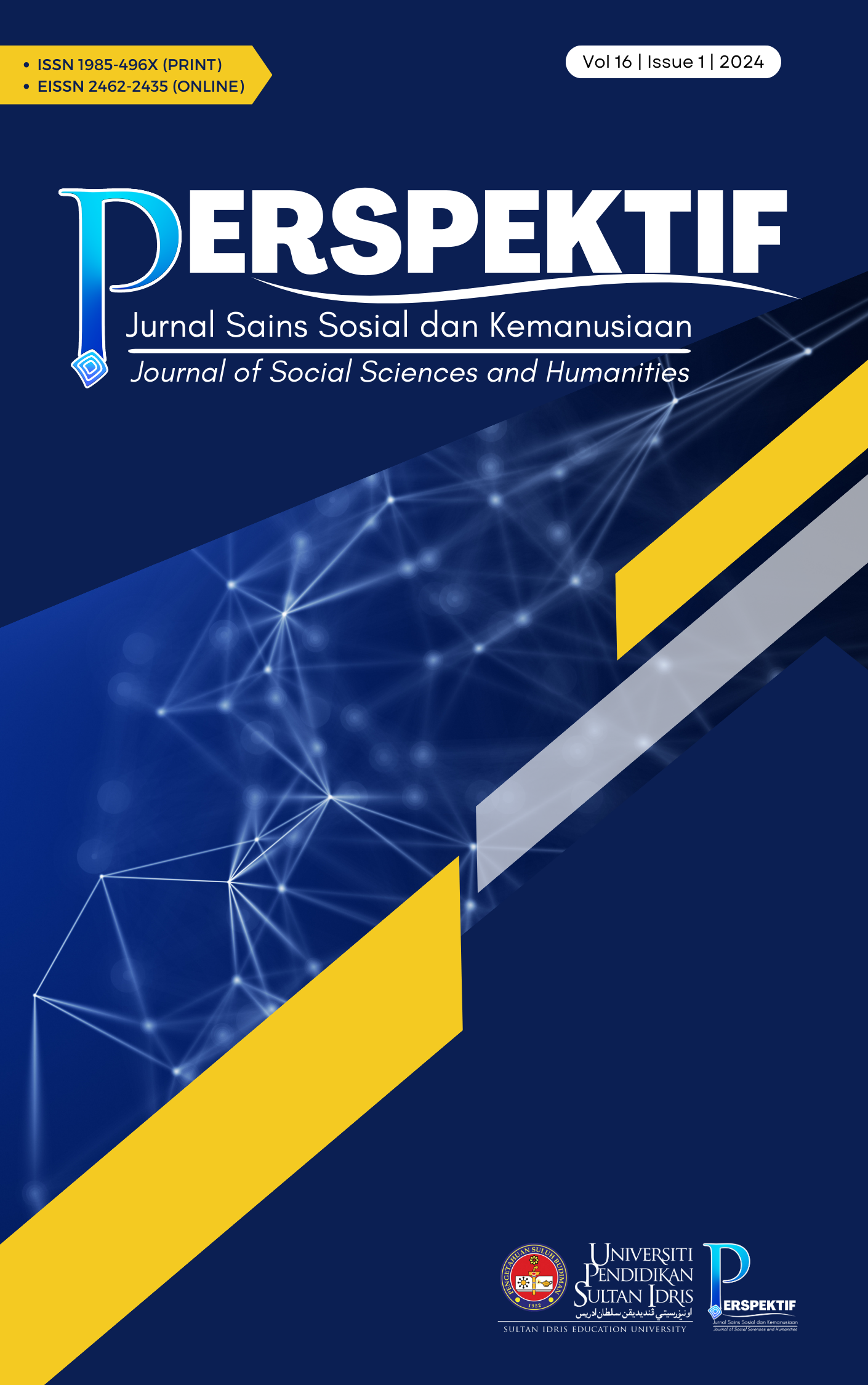Emotional Analysis of the Leader in the IMAM Novel Based on Daniel Goleman's Theory of Emotional Intelligence
DOI:
https://doi.org/10.37134/perspektif.vol16.2.8.2024Keywords:
self-awareness, self-management, social awareness, social skills and empathyAbstract
This study aims to analyze the emotions of a leader in the novel IMAM by Abdullah Hussain based on the emotional intelligence theory introduced by Daniel Goleman. The novel features the character Haji Mihad, an imam facing challenges in fulfilling his religious responsibilities a midst the social changes and evolving values of modern society. The five core components of emotional intelligence—self-awareness, self-management, social awareness, social skills, and empathy—serve as the framework for this analysis. Using a textual analysis approach, this study examines how these emotional intelligence elements are portrayed in the protagonist’s ability to handle pressure, resolve conflicts and build relationships within the community.The findings reveal that Haji Mihad possesses high emotional intelligence, particularly in the areas of self-awareness, self-management and empathy, which enable him to maintain his integrity as a religious leader. However, weaknesses in social skills when dealing with authorities present challenges in strengthening his influence. These findings underscore the critical role of emotional intelligence in determining leadership effectiveness, especially within complex and diverse societal contexts. This study contributes to understanding the role of emotions in leadership through the lens of Malay literature. It also highlights the relevance of emotional intelligence for leaders in navigating the challenges of contemporary social changes.
Downloads
References
Bar-On, R. (2000). Emotional and social intelligence: Insights from the Emotional Quotient Inventory (EQ-i). In R. Bar-On & J. D. A. Parker (Eds.), Handbook of emotional intelligence (pp. 363–388).
Boyatzis, R. E., & McKee, A. (2005). Resonant leadership: Renewing yourself and connecting with others through mindfulness, hope, and compassion. Harvard Business Review Press.
Boyatzis, R. E., Smith, M., & Blaize, N. (2021). Emotional intelligence competencies and leadership effectiveness: Insights from executive coaching practices. Frontiers in Psychology, 12, 1178. https://doi.org/10.3389/fpsyg.2021.1178
Bradberry, T., & Greaves, J. (2021). Emotional intelligence 2.0. TalentSmart.
Brasseur, S., Grégoire, J., & Mikolajczak, M. (2022). The role of empathy in leadership: A meta-analytic review. Leadership Quarterly, 33(1), 123-139. https://doi.org/10.1016/j.leaqua.2022.101631
Braun, V., & Clarke, V. (2021). Thematic analysis: A practical guide. Sage.
Caruso, D. R., & Salovey, P. (2004). The emotionally intelligent manager: How to develop and use the four key emotional skills of leadership.
Creswell, J. W. (2014). Research design: Qualitative, quantitative, and mixed methods approaches (4th ed.). Sage.
Creswell, J. W., & Poth, C. N. (2018). Qualitative inquiry and research design: Choosing among five approaches (4th ed.). Sage.
Goleman, D. (1995). Emotional intelligence: Why it can matter more than IQ. Bantam Books.
Goleman, D. (1998). Working with emotional intelligence. Bantam Books.
Goleman, D. (2006). Social intelligence: The new science of human relationships. Bantam Books.
Goleman, D. (2013). Focus: The hidden driver of excellence. Harper.
Hussain, A. (1995). IMAM. Dewan Bahasa dan Pustaka.
Idris, M. R., Abdul Wahab, N., & Hassan, R. (2023). Emotional intelligence in Malay literature: Exploring leadership and moral challenges in literary texts. Journal of Southeast Asian Studies, 28(3), 233-249. https://doi.org/10.1016/j.jseas.2023.233249
Merriam, S. B., & Tisdell, E. J. (2016). Qualitative research: A guide to design and implementation (4th ed.).
Wang, X., Chen, Z., & Li, J. (2023). Social intelligence and leadership effectiveness in organizational settings. Journal of Organizational Behavior, 44(2), 231-248. https://doi.org/10.1002/job.2562
Downloads
Published
How to Cite
Issue
Section
License
Copyright (c) 2024 Nordiana binti Hamzah, Hasrina binti Baharum, Farra Humairah binti Mohd

This work is licensed under a Creative Commons Attribution-NonCommercial-ShareAlike 4.0 International License.





